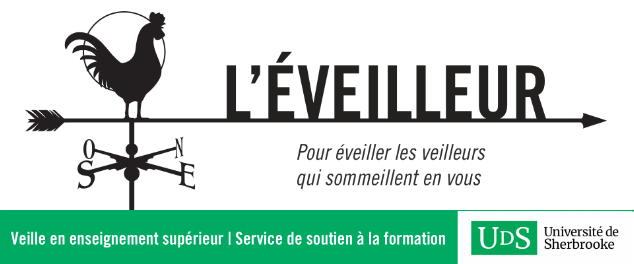Article un peu marginal mais passionnant de Serena Golden dans le Inside Higher Ed. Elle interview Emery Petchauer, professeur d’éducation à la Lincoln University en Pennsylvannie. Le Pr. Petchauer vient de faire paraître Hip-Hop Culture in College Students’ Lives où il s’intéresse à la façon dont la sensibilité à la culture hip-hop colore la vie des étudiants américains. Quelques pistes de réflexion me semblent très riches, notamment sur le sampling (l’échantillonage… et le rapport aux savoirs qu’il suppose) et sur l’affect (feel) comme manière de s’investir dans le monde ou dans la classe.
Q: What are some ways that “hip-hop collegians apply hip-hop aesthetics and concepts to education”?
A: One of the clearest applications of hip-hop aesthetics is “sampling.” Sampling is a type of appropriation that is present in all types of hip-hop expressions. People take what is useful — whether it’s an idea, movement, or sound — disregard what is not useful, and meld those things into something new. For hip-hop collegians, it is natural to sample from all different types of knowledge sources for class because this is precisely what they’ve been taught to do through hip-hop.
Another example is the idea of feeling something, or what has been called “kinetic consumption.” Feeling or affect is a legitimate way to engage with the world, and it is a quintessentially hip-hop way to engage with the world. Hip-hop first and foremost is meant to be felt. Period. Sure, it may be interesting, evocative, or even offensive — but all of this comes after its feeling. This is even signified in the language of hip-hop in the refrain “do you feel me?” So for hip-hop collegians, feeling and affect are important points of engagement, even for course material and activities on campus.
Et pour aller plus loin à propos du sampling :
Q: You note that hip-hop collegians may be particularly inclined “to view university education as containing limited representations of knowledge and reality.” What are the advantages and drawbacks of this, and how should educators handle it?
A: This view is a result of sampling, which I discussed above. If a person is prone to sampling different knowledge sources, put them up against one another, and make sense of them, inevitably they are going to see the limitations of some bodies of knowledge. And some of these bodies of knowledge are part of higher education disciplines. Over all, this is a good thing, because bodies of knowledge are limited. Counternarratives, paradigm shifts, and new discoveries are a central part of every discipline. So seeing limitations is an important part of the educational process.
Educators should embrace the skepticism and other knowledge sources that students bring with them. If educators don’t, then they are creating a narrow learning environment that doesn’t educate full persons. This doesn’t meant that any knowledge source students bring with them is correct. Some of them are not. It also doesn’t mean that there are not vital bodies of knowledge that students need to learn from formal education. There certainly are, and hopefully that is one thing they are getting by paying a ridiculous amount of money to be in college. The point is that the skepticisms or perspectives of limited knowledge, when embraced in a learning environment, make for a more robust and diverse learning environment. They are pedagogical starting points.
Pour aller plus loin à propos de l’affect :
Q: What is “edutainment”? How does it function in practice?
A: […] In practice, this means that education should be felt. It should engage the affective part of a person while simultaneously being rigorous. This is something I use in my classes all the time. I make my students write about what they “felt” in a reading before we analyze and evaluate the ideas. What you feel (and don’t feel) is an incredibly important starting point. Some might say it’s the most important staring point. Or sometimes I don’t truly start class until I sense student are affectively on: feeling me, feeling one another, feeling what’s going on in the world. In practice, this also applies to programs on campus. To paraphrase one of the students in the book, people join campus organizations for one reason above all: to be entertained. So making sure people are affectively linked to what his happening — whatever the topic may be — is important. That’s edutainment.
Source :
Golden, Serena, « Hip-Hop Culture and Students », Inside Higher Ed, 22 décembre 2011






